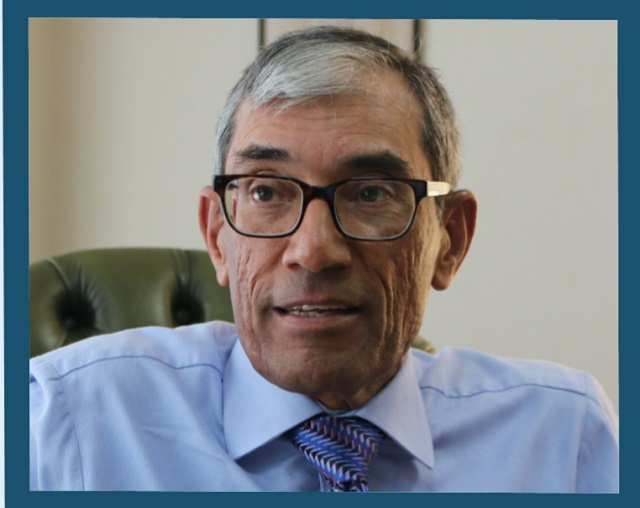
Azim Tharani, is the Managing Director for GoldStar Insurance Company Limited. He spoke to The Independent’s Julius Businge about industry opportunities
Give a brief description of GoldStar Insurance services in Uganda?
We were incorporated in 1994 but started business in 1996 when the industry was in its infancy stage by then. Our philosophy was to try to change the industry and improve its image. We focus on providing excellent service to our customers. We also mainly focus on the corporate sector which includes companies, NGOs and government parastatals. Our company is well capitalized and is meeting all industry standards. We have trained professional staff.
What are the various products that you offer on the market?
We are in general insurance services. We do fire, engineering, motor, workers compensation, fidelity guarantees and all other products under general insurance. We are prudent underwriters – if the risk is not good, we do not underwrite it – that is why we are not doing medical insurance at the moment. There are other products that we do on an accommodation basis – like marine and customs bonds. We also do travel insurance largely for executive clients.
What makes your products different from those offered by other players?
It is a question of choice of our clients. We get to know our customers by carrying out careful analysis of risks involved. It is because of that that we are able to make profits every year since we started our business.
What is your overall contribution to the economy?
We have about 30 staff and 10 agents. We underwrite on average between Shs25-28bn per year. We pay corporation tax amounting to Shs1bn a year. In addition we pay PAYE, VAT which pushes our overall tax contribution to Shs5bn per year. On average, our growth claims amount to Shs6-7bn per year.
What is your comment on the view that insurance market in Uganda is saturated?
It is not saturated. It is a question of how companies tap into the market. On average, annual premium income per company is between US$1-2 million in this market which is much lower than what other countries like Kenya and Tanzania report. From that stand point, one can argue that the market is saturated. However, when you look at the other side of business, the penetration rate of the industry is less than 1% of GDP compared to Kenya which is at 3%. Rwanda’s is also higher than ours. As Uganda Insurers Association, we are working to increase penetration because we believe there is a market. With now bancassurance, penetration is set to improve further.
There is a talk about the planned national health insurance scheme supporting boosting penetration…
I don’t know how it is going to be implemented with the private sector. There are many Health Membership Organisation’s like IAA, AAR offering medical insurance and are regulated by IRA. There are certain laws that are not enforced. For instance, government law stipulates that if you are a company and you want to do business in Uganda, all your insurance should be done through locally licensed insurance companies. This is not entirely happening. Also workers compensation is mandatory on all employers but that has not fully been implemented. Marina insurance – most importers let their suppliers arrange insurance products from abroad instead of buying it from us. But we are engaging the government through the regulator to have these policies and laws implemented.
How are you contributing to government’s high profile development projects?
We have participated in Karuma and Isimba hydropower projects as well as Entebbe Express Highway. We are the insurers of the Airport in Hoima. The oil and gas sector is lucrative but has potential risks. We have formed a consortium called Insurance Consortium for Oil and Gas of Uganda amongst ourselves (15 insurance companies) for which I am the chairman. This is aimed at helping us pull resources together to offer insurance services to the sector. We have informed all sector players and the regulator is supporting us on this.
What is your view on risk based supervision that the regulator is planning to implement?
It is a good move because it allows the regulator and the players to ensure companies do not underwrite risks beyond their capital. The minimum capital required now is Shs4bn to set up an insurance company for life and nonlife. Our capital is Shs10bn. We have not stuck to the minimum capital. The regulator has carried out risk based supervision calculation basing on type of risks we underwrite, loss ratio and re-insurance arrangements. I am told GoldStar is one of the three companies meeting the requirement of Risk Based Capital. My personal view is that if they want us to move to risk based capital, the regulator must allow the players to determine the pricing of the products. The government and the regulator must have confidence in us and appreciate the fact that we are commercial enterprises. It is possible for this move to cause mergers and acquisitions.
Where do you want to see GoldStar in the next 3-5 years?
We want to remain relevant in the industry. For that to happen, we will stick on the four pillars of our business – strong financial capital base, good re-insurance, excellent service and use of professional/qualified staff.
****
 The Independent Uganda: You get the Truth we Pay the Price
The Independent Uganda: You get the Truth we Pay the Price


